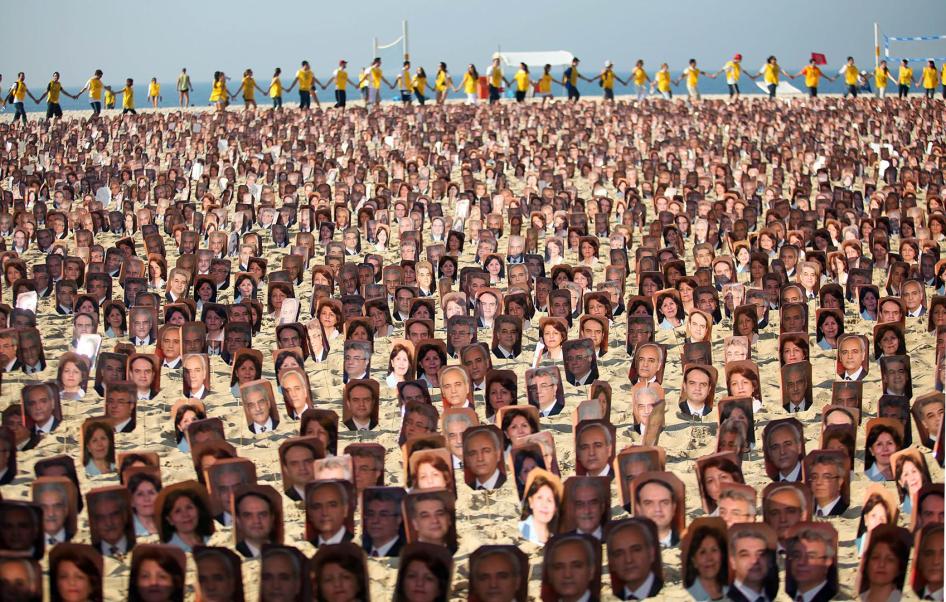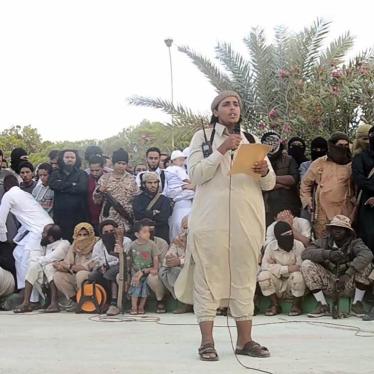(Beirut) – Iranian intelligence officials have increased the arrests of the country’s Baha’i religious minority over the past two months, with no clear charges, Human Rights Watch said today. In August and September 2018, authorities arrested more than 20 Baha’i citizens, as well as a city council member who a colleague said offered support for those arrested.
Those arrested included 12 people in the city of Shiraz, 4 of whom remain detained in an Intelligence Ministry detention center. On September 25, the Center for Human Rights in Iran (CHRI) reported that between August 23 and September 23, authorities arrested 11 more Baha’is in Isfahan and Karaj provinces and transferred them to the Shiraz detention center. The source who spoke to Human Rights Watch did not know about the charges brought against the detainees. Authorities also detained Mehdi Hajati, a member of Shiraz City Council, for 10 days after he said he was trying to secure the release of the Baha’is.
“The more than 20 arrests in a month without providing any justification shows how intolerant the Islamic Republic is towards Iran’s Baha’i community,” said Michael Page, deputy Middle East director at Human Rights Watch. “And authorities are taking their campaign of intimidation, harassment, and persecution even further by detaining elected officials who dare to show solidarity with their fellow citizens who are Baha’i.”
Iran’s constitution does not recognize Baha’is as a religious minority in Iran. Authorities routinely harass, prosecute, and imprison Baha’is solely for practicing their faith, and they also regularly destroy their places of burial. They also prevent Baha’i students from registering at universities and expel those who are adherent of this faith.
On October 10, a source who wished to remain anonymous told Human Rights Watch that authorities arrested Bahareh Qaderi, Navid Bazmandegan, Ehsan Mahboob Rahvafa, Elaheh Samizadeh, Soudabeh Haghighat, and Noora Pourmoradaian on August 24 and 25. The source said the authorities arrested Koroosh Rouhani, Mahboob Habibi, Dorna Esmaili, Houman Esmalili, Negar Misaghian, and Pejman Shahriari on August 17.
Authorities released Misaghian and Dorna Esmaili the day of their arrest, while conditionally releasing Rouhani, Shahriari, Habibi, Haghighat, Pourmoradian, and Samizadeh until their trial.
The Center for Human Rights in Iran said that authorities arrested Bahareh Zeini, Sepideh Rouhani, Afshin Bolbolan, Milad Dordan, Anousheh Rayneh, Farhang Sahba and Foujan Rashidi in city of Baharestan, in Isfahan province, and Peyman Manavi, Kianoush Salmanzadeh, Maryam Ghaffarmanesh and Jamileh Pakrou in the city of Karaj, in Alborz Province in period between August 23 and September 23.
On September 27, Qasem Moghimi a member of the Shiraz City Council, told the Islamic Republic News Agency (IRNA) that authorities arrested Hajati, a member of Shiraz city council who is also a member of the council’s citizens’ rights commission, “for supporting Baha’is.”
Hajati had tweeted on September 25 that “Over the past 10 days, I tried my best to secure the release of two Baha’i friends but have failed. While standing against the foreign enemy, our generation has a duty to do its best to reform the judicial processes and other issues that threaten social justice.”
On September 30, Ali Alqasimehr, the head of the judiciary in Fars province, told Mehr News that other than “supporting a deviate cult,” Hajati is facing other criminal charges but did not provide details. Authorities released Hajati on October 7.
Several members of the Iranian parliament raised concerns about Hajati’s arrest and said he was defending citizens’ rights. On October 3, however, the association of members of parliament from Fars province published an open letter asking authorities to not allow the “deviant cult” of Bahai’s to conspire and operate while ensuring citizens’ rights are respected.
On September 18, Iran Wire news website published the name of 54 Baha’i students whom authorities had prevented from registering at universities after they took the national entrance exam for the 2018 school year. The origin of such blatant discrimination reportedly goes back to a 1991 by-law of the High Council of Cultural Revolution, a body in charge of setting education policies, that mandates authorities to expel Baha’i students from higher education institutions.
Under the International Covenant on Civil and Political Rights”(ICCPR), to which Iran is a party, freedom of religion includes “freedom to have or to adopt a religion or belief of his choice, and freedom, either individually or in community with others and in public or private, to manifest his religion or belief in worship, observance, practice and teaching.” Similarly, under ICCPR “anyone who is arrested shall be informed, at the time of arrest, of the reasons for his arrest and shall be promptly informed of any charges against him.”
“For four decades Iran’s judiciary and security agencies have violated the most fundamental rights of the Baha’i community in Iran,” Page said. “President Rouhani and his cabinet need to stop pretending that they aren’t responsible for persecuting the Baha’i and end these violations.”









